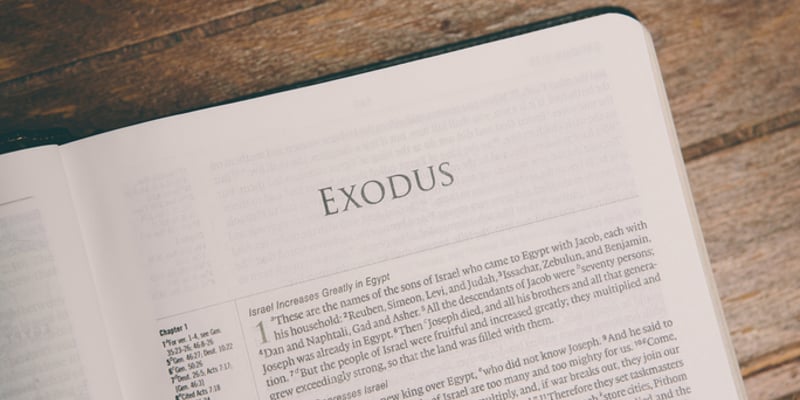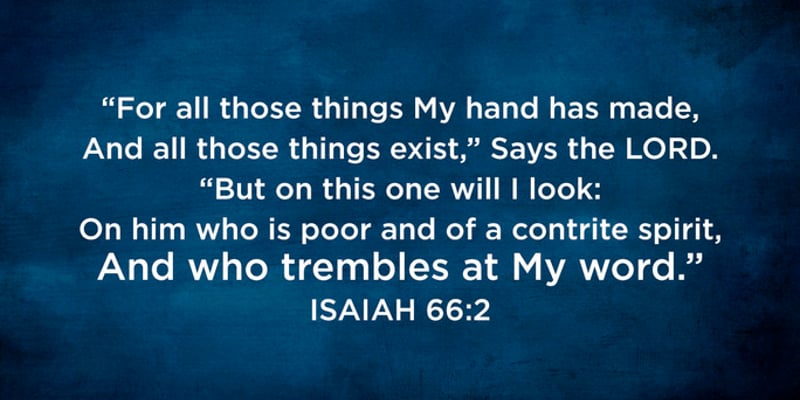Our Passover Self-Exam
Written by Gabe Ellis
The self-examination period preceding the spring festivals is a time to assess our spiritual state. How can we effectively analyze our spiritual lives?

All of us at one point in our lives have taken a test or exam. Whether it is for a math course in high school, a midterm in college or the bar exam to become a lawyer, the process of preparing for an exam can take many hours of focus and study time to achieve a desired mark. It requires understanding the concepts taught and applying them on exam day.
For Christians who have been baptized and received God’s Holy Spirit, there is an annual self-examination each year prior to the spring festivals.
The preparation for this annual exam involves deep thought and consideration. It takes a great deal of research in our course textbook and one-on-one sessions with our Teacher. The words from the course material cannot be merely memorized to “pass” the test.
This is not an assessment of the amount of knowledge we have on the subject being taught. It is a detailed inspection of our inner thoughts, motives, attitudes and behaviors. It requires a close and careful investigation of our past and its impact on our future.
The course could be called “Knowing Yourself,” and the textbook is the Holy Bible.
The annual self-examination period leads up to the Passover commemoration and the first day of Unleavened Bread. What are we instructed to be investigating? How should we conduct this self-examination? Why is it critically important that we as Christians perform a thorough study of ourselves?
PBI: Personal Bureau of Investigation
We are on the hunt to meticulously assess where sin is rooted in our lives. Sin is the transgression of God’s law (1 John 3:4). The breaking of the law inhibits our ability to have a truly solid relationship with God and build His holy righteous character. We should examine whether we have gone back to our previous carnal pursuits and the way of Satan.
Sin is the wedge that drives us further away from God. We must evaluate if we are committing the works of the flesh and replace them with God’s fruit (Galatians 5:16-26).
Search and request
We should diligently examine ourselves, as well as ask God to search our thoughts and motives. The search starts by actively analyzing our minds. The habitual sins we become aware of will impede our ability to build godly character.
Self-examination involves acknowledging the sins that easily ensnare us and laying aside the weights loading us down (Hebrews 12:1). Then we must repent and take the necessary steps of rooting sin out until righteousness becomes our new habit.
The real danger can be the sins lurking in shadows unbeknownst to us. But the reality is that we can’t hide our sins from God (Hebrews 4:13). The secret sins we are ignorant of are clear to God (Psalm 90:8). This is the reason King David pleaded with Him, asking, “Search me, O God, and know my heart” (Psalm 139:23). If we ask God to inspect our hearts, He will bring our secret sins to our attention. The knowledge of our infractions empowers us to consciously turn away from them and turn back to God (Lamentations 3:40).
Test yourself
The apostle Paul sincerely desired that the Corinthians examine whether they were in the faith (2 Corinthians 13:5). This is a sobering question we must ask ourselves. Am I in the faith? Do I truly know myself? Am I conducting an honest assessment of my current spiritual state?
Paul continued in the same verse, “Test yourselves.” When an assayer inspects the quality and purity of metal, he puts it to the test. The impurities of the metal are brought forth and removed by fire (1 Corinthians 3:13). If a fashioned blade stands a series of rigorous tests in purity, strength and durability, it is proven to be a qualified tool. Through trials and tests, we can become exemplary instruments in the hand of God (1 Peter 1:7).
The course of “Knowing Yourself” involves identifying our personal sins, searching our minds and proving ourselves to be qualified members in the Body of Christ. The self-examination process does not conclude after the spring holy days. It should intensify prior to the Passover and Days of Unleavened Bread and continue throughout the year.
Now is the time to analyze if our lives are in line with our model, Jesus Christ. Let’s continue to earnestly strive to faithfully overcome and prepare to enter the Kingdom of God.
For more insight on this topic, read our blog “Self-Examination: Asking the Hard Questions.”










